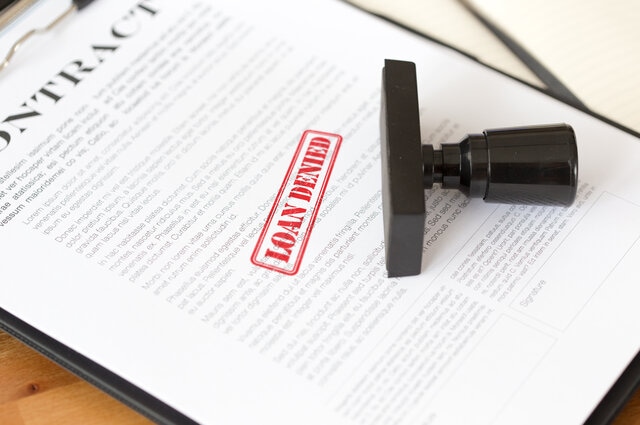

Individuals injured in an accident that was another’s fault may qualify for financial assistance through legal funding. Often, these victims are so severely hurt that they cannot work or provide for their families. Legal funding can help you and your family stay afloat financially while waiting for a settlement payout. This option is not a traditional loan but is a cash advance on the lawsuit’s final proceeds. The recipient is only required to pay back the funds if the case ends in the victim’s favor. There are several qualifications a plaintiff must meet to be approved for this type of financial assistance.
Everyone is aware that a person’s low credit score, lack of income, or inadequate employment verification can prohibit a traditional loan from being approved. However, these factors are not considered during the approval process for legal funding. Instead, approval for this type of financial assistance is based on the strength of the legal case. In other words, if the legal claim in a lawsuit is strong, the applicant has a high probability of being approved for a cash advance. Likewise, if the case’s merit is weak, the chances of approval are slim.
Additional reasons may hinder an accident victim from receiving legal funding approval, no matter the lawsuit’s strength. Of course, each case is different due to various factors. The information provided here will discuss common reasons applicants are denied legal funding and what can be done next.
Reasons Why You Were Denied Legal Funding
- Restrictions Within a State
- Victim Has no Attorney
- Maximum Funding Has Already Been Received
- The Defendant is Not Able to Pay Settlement
- Attorney Refuses to Cooperate
- Liability Issues
- Lawsuit is Too New
- Restrictions Within a State – Most U.S. states have no rules or regulations prohibiting an individual from applying for a lawsuit loan. There are, however, some restrictions in particular states that might cause an application to be denied. Workers’ compensation legal funding is prohibited in 33 states, and three states – Maryland, Colorado, and Tennessee – prohibit any type of legal funding.
- Victim Has no Attorney – For a plaintiff to receive approval, the plaintiff must be represented by an attorney working on a contingency fee basis. During the approval process, the lawyer will need to provide the funding company with necessary background information concerning the case and specific key documents. Without legal representation by an attorney, the chances of a victim winning a case are drastically reduced. Legal funding cash advances are disbursed based on the likelihood that a case will end successfully. Therefore, only plaintiffs with an attorney will be able to pre-qualify for third-party funding.
- Maximum Funding Has Already Been Received – Individuals who have previously applied and received legal funding may have obtained the maximum amount available. There are no restrictions against applying for more than one cash advance, though. Often, plaintiffs do seek additional funds. To be clear, having already received previous funding does not disqualify an individual from seeking additional funds. However, if the maximum amount possible has already been obtained, an additional application will likely be denied.
- The Defendant is Not Able to Pay Settlement – Even if a court awards a monetary settlement to a victim, this action is futile if the defendant cannot pay the amount to the plaintiff. A legal funding company will not invest in a case if the defendant is not financially solvent because the company will not get paid in the end. If, however, it comes to light that assets belonging to the defendant that were previously unknown, this information could potentially alter a former denial of legal funding.
- Attorney Refuses to Cooperate – If the victim’s lawyer chooses not to provide the legal funding company with necessary case documentation, there will be no way to make a proper determination of the case’s worth. Without evidence of the lawsuit’s value, the third-party will not make a monetary investment. If a victim’s lawyer does not assist in the application process, The Legal Funding Group can recommend a lawyer who will work with the plaintiff to help accomplish the desired results.
- Liability Issues – Even though a plaintiff may believe the lawsuit is strong, a funding company must ensure that the plaintiff is not at fault. If it is unclear who is liable, a funding company will likely not approve the cash advance. Frequently, the exact details of a case differ somewhat from the ones presented by the plaintiff. For this reason, a funding company will want to view all pertinent facts of a lawsuit before approval of a funding application.
- Lawsuit is Too New – Due to the high-risk factor involved when financially investing in a case, a legal funding company will need sufficient medical records, police reports, and other documentation to make a qualified decision. If the accident happened too recently or there are not enough records available yet, the company may be uncomfortable giving the funding at the present time.
Your Next Steps
Just because you were denied legal funding in the past does not mean you won’t be approved in the future. As your lawsuit evolves, it may come into a better phase that will allow for legal funding. Knowing why you were denied legal funding can help you recognize the right time to reapply when the situation changes. For example, if a fault had not previously been established, reapply after the attorney establishes the defendant’s liability.
Contact The Legal Funding Group
The Legal Funding Group has amassed a wealth of experience helping clients and attorneys discover every option available to make the financial path smoother during a lawsuit. Let us help you find financial security during your case.


